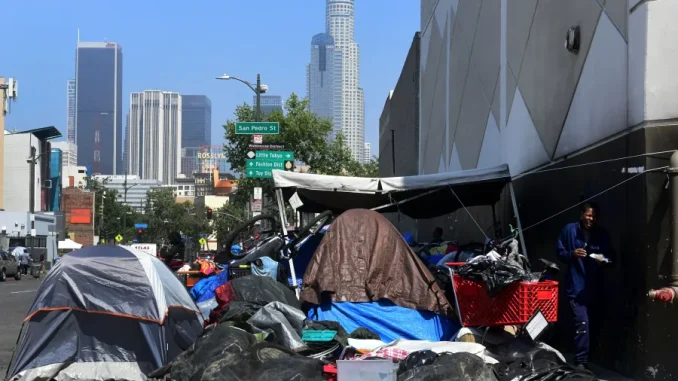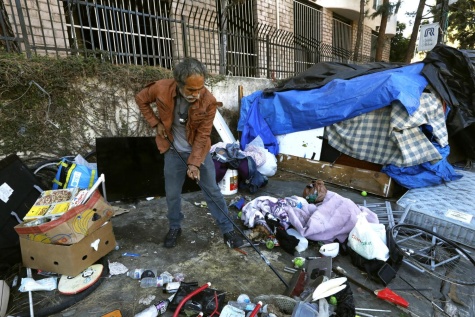
Sophia Yeskulsky | Sports Editor
May 2, 2024
The Supreme Court’s deliberation on the case of the City of Grants Pass v. Johnson has the potential to reshape how cities nationwide, particularly in California, address homeless encampments. With almost 30% of the nation’s homeless population residing in California, the outcome of this case holds significant implications for the state’s ongoing struggle with homelessness.
At the heart of the case is the question of whether homeless individuals have the right to camp in public spaces. Grants Pass, a city in Oregon, is defending its ban on camping throughout the city, regardless of the availability of shelters. The plaintiffs, the people who are suing, argue that such a ban criminalizes homelessness itself, violating constitutional protections against cruel and unusual punishment.
Governor Gavin Newsom has voiced his concerns about the homelessness issue and emphasized the need for viable alternatives for those living on the streets. In a recent press conference, he explained that when he toured a homeless encampment, it “felt like a scene out of one of Raiders of Lost Ark” with the amount of rats running around, with needles and feces strewn everywhere. “No compassion, no compassion whatsoever, leaving people in those conditions,” he said.
With the increasing severity of the problem, the Supreme Court’s decision takes on added significance. It not only impacts the lives of thousands of homeless individuals but also shapes the policies and practices of cities nationwide that are grappling with the complexities of homelessness.

If Grants Pass wins, other cities, especially conservative ones in Southern California, might copy their ban on public camping. This could make things worse by forcing homeless people into more liberal cities where these rules aren’t in place.
Conversely, a ruling against Grants Pass could affirm the right of homeless individuals to camp in public without restriction. This could lead to investments in alternative solutions such as permanent supportive housing.
California officials, including Governor Gavin Newsom, have urged the Supreme Court to provide clarity on how cities can regulate camping. The current legal landscape, particularly a 2018 Ninth Circuit Court ruling, has led to a patchwork of anti-camping rules and ongoing legal challenges.
While some advocate for a middle-ground ruling that balances the rights of homeless individuals with the need for public safety, others argue that the focus should be on addressing the root causes of homelessness, such as housing affordability and poverty.
Junior Brianna Diaz emphasized how important it is that “some action is taken to clean up the streets.” Sophomore Jayden Smithers agreed and explained how “more supportive housing could help” solve the public camping issue that is lingering in Los Angeles.
Ultimately, the Supreme Court’s decision in City of Grants Pass v. Johnson will have a far-reaching effect on how cities in California and beyond approach homelessness as well as shape policies and practices for years to come.

Leave a Reply